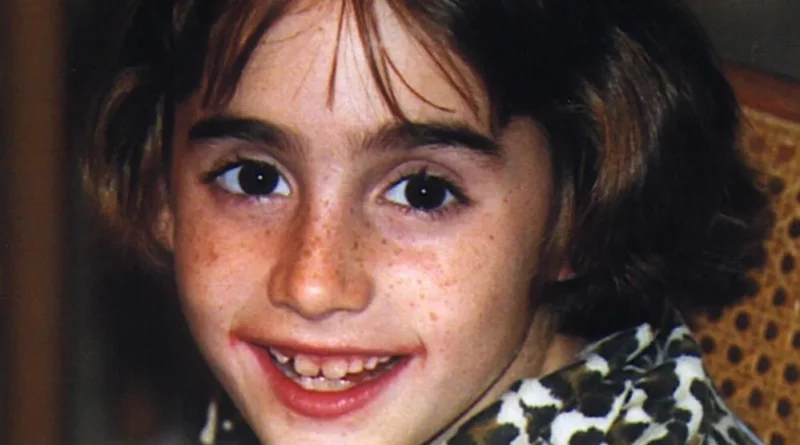Maddie Clifton Killed By Teenage Neighbor in Jacksonville Florida
Madelyn “Maddie” Clifton was born in 1990 and grew up in the Lakewood neighborhood of Jacksonville, Florida. At just eight years old, she was described as lively, outgoing, and full of energy. She was a typical child in many ways: she loved playing outdoors, riding her bike, laughing with friends, and spending time with her family. Maddie’s infectious smile and playful nature made her well-liked by neighbors and classmates alike. She lived with her parents and sister in a modest home in a community where children often played outside until dusk.
Her neighborhood was the type where families felt safe, where neighbors knew one another, and where kids could still play freely. That sense of security would be shattered in November 1998 when Maddie disappeared, triggering one of the most chilling cases in Florida’s history.
The Day of Disappearance
On the afternoon of November 3, 1998, Maddie left her home to play outside. She lived just doors away from the home of her friend and neighbor, fourteen-year-old Joshua Phillips. Maddie often spent time outside after school, sometimes playing ball, riding her bike, or visiting nearby friends. When she did not return home later that day, her family grew immediately concerned.
Her mother reported her missing, and within hours, a community-wide search began. Hundreds of neighbors, volunteers, and law enforcement officers canvassed the area, searching wooded lots, backyards, and nearby parks. Flyers were printed and distributed rapidly. Maddie’s face appeared on television news across Jacksonville and soon across the nation, sparking fear and sympathy.
Despite the urgency and massive scale of the search, no one could find her. For days, hope remained alive that Maddie was still out there, perhaps abducted but recoverable. That hope began to fade as days turned into a week.
The Shocking Discovery
On November 10, 1998, one week after Maddie went missing, her body was discovered in the most unexpected and horrifying place imaginable: inside the bedroom of her 14-year-old neighbor, Joshua Phillips.
The discovery was made by Joshua’s mother. She noticed a strange odor in her son’s room and spotted something unusual — liquid leaking from the waterbed frame. When she investigated further, she lifted the bed frame and discovered Maddie’s body hidden inside, wrapped and taped beneath the mattress. Horrified, she immediately called police.
Authorities swarmed the Phillips home, and Joshua was taken into custody. Within hours, he confessed to killing Maddie. His confession and the circumstances of the discovery horrified not only the community of Jacksonville but also the entire country.
The Confession and Crime Details
Joshua Phillips provided a disturbing account of what happened on the day Maddie disappeared. According to his statement, Maddie had come over to play. They began hitting a baseball back and forth in the yard. At one point, he struck her with the ball, causing her to cry out loudly.
Fearing that his strict father would punish him if he discovered that Maddie had been injured while inside their home, Joshua panicked. In a misguided and horrific attempt to silence her, he dragged her inside, striking her multiple times with a baseball bat. He then stabbed her repeatedly with a knife before hiding her body under the waterbed in his room.
For the next week, while the entire neighborhood searched for Maddie, Joshua lived with her body hidden just feet away from where he slept. He attended school, ate meals with his family, and even participated in search efforts, all while knowing the truth. The gruesome details of the crime shocked investigators and the public, raising disturbing questions about what could drive a 14-year-old to commit such violence.
The Arrest and Initial Reactions
When Joshua was arrested, the community was stunned. He had no prior criminal record, no history of violence, and was generally perceived as a quiet, unremarkable teenager. Many in the neighborhood had joined him in the search for Maddie, never suspecting that he had been involved.
The revelation devastated the Clifton family. They had spent days in anguish, hoping for Maddie’s safe return, only to discover that she had been murdered by someone they knew and trusted in their own neighborhood. Vigils were held across Jacksonville, and residents placed flowers, teddy bears, and notes of sympathy near the Clifton home.
The case quickly drew national attention. News outlets across the country reported on the shocking crime, with images of Maddie’s bright face and reports of a child perpetrator dominating headlines.
The Trial of Joshua Phillips
Because of the severity of the crime, Joshua Phillips was charged as an adult with first-degree murder. The decision was controversial, as he was only fourteen at the time of the killing. Prosecutors argued that the brutality of the act — multiple blows with a bat and repeated stabbing — warranted the highest charge.
The trial began in 1999, and it was closely watched across the nation. The prosecution presented evidence of premeditation, citing his efforts to conceal Maddie’s body and the sustained violence. They argued that he acted deliberately to avoid being caught by his father.
The defense argued that Joshua acted in panic, not with premeditation, and that his age should mitigate the punishment. Psychologists testified about his immaturity, lack of criminal history, and possible fear of his father’s strict discipline.
Despite these arguments, the jury found Joshua Phillips guilty of first-degree murder. In August 1999, he was sentenced to life in prison without the possibility of parole. At that time, Florida law mandated this sentence for juvenile offenders convicted of first-degree murder.
Life in Prison
Joshua Phillips began serving his life sentence in a Florida prison. He was among the youngest inmates ever sentenced to life without parole in the state. For years, he lived behind bars, while legal experts and advocates debated whether juveniles should face such harsh penalties.
The U.S. Supreme Court’s 2012 decision in Miller v. Alabama, which ruled that mandatory life without parole sentences for juveniles were unconstitutional, opened the door for resentencing hearings. In 2017, Phillips was resentenced to life with the possibility of review after 25 years. This meant that after serving a quarter-century in prison, he would be eligible for a review to determine whether he could be released based on evidence of maturity and rehabilitation.
For the Clifton family, however, the possibility of his release reopened old wounds. They remained steadfast in their belief that justice required Phillips remain incarcerated for life.
The Impact on the Clifton Family
The murder of Maddie devastated her family. Her parents and sister were forced to live with the trauma of losing an innocent child in such a violent and shocking manner. Publicly, they spoke about the pain of her absence, describing Maddie as a light in their lives who was taken too soon.
They also had to endure years of legal proceedings, media attention, and eventual resentencing hearings for Joshua Phillips. Each court date reopened old grief and forced them to relive the tragedy. Despite their anguish, they continued to honor Maddie’s memory through vigils, memorials, and personal reflections.
Community Reaction
The neighborhood where Maddie lived was forever changed. For many residents, the crime shattered the sense of security they once felt. Parents who had allowed their children to roam freely began keeping closer watch, and children who had once played together without fear now did so under the anxious eyes of adults.
Jacksonville as a whole responded with shock and mourning. Vigils were held throughout the city, and Maddie’s case became a symbol of both the fragility of childhood innocence and the potential for violence that can lurk in unexpected places.
The case also fueled broader debates about juvenile justice, the sentencing of minors, and how society should respond when young people commit heinous crimes.
Broader Legal Implications
The Maddie Clifton case remains significant not only for its tragedy but also for its role in ongoing legal debates. Phillips’ original sentence reflected the tough-on-crime stance of the 1990s, when even very young offenders were frequently tried as adults.
However, the evolution of juvenile justice in the years since has cast new light on the case. Neuroscientific research on adolescent brain development, Supreme Court rulings, and shifting public opinion have all contributed to changes in how juvenile offenders are punished.
For Joshua Phillips, these changes provided the opportunity for resentencing, though the outcome has remained life imprisonment with the potential for review. The Clifton family, meanwhile, continues to insist that no amount of rehabilitation can undo the brutality of what happened to Maddie.
Legacy of Maddie Clifton
More than two decades later, the memory of Maddie Clifton lives on. For those who knew her, she remains the smiling, energetic little girl whose life was stolen too soon. For Jacksonville, her story is a reminder of both the dangers that can exist even in seemingly safe places and the importance of vigilance in protecting children.
Her case is still studied by criminologists, legal scholars, and advocates who grapple with the balance between justice for victims and the treatment of juvenile offenders. But beyond the debates and court rulings, Maddie’s legacy endures as a child who should have grown up, gone to high school, pursued dreams, and lived a full life — but never had the chance.
Conclusion
The killing of Madelyn “Maddie” Clifton on November 10, 1998, in Jacksonville, Florida, remains one of the most heartbreaking and unforgettable cases in modern criminal history. An innocent 8-year-old was taken in a senseless act of violence by a teenage neighbor, leading to a community in mourning and a family devastated beyond repair.
Though Joshua Phillips was brought to justice and remains imprisoned, the case continues to echo through discussions of juvenile crime, sentencing, and rehabilitation. The tragedy underscores the vulnerability of children, the responsibilities of communities, and the lifelong pain left behind when innocence is destroyed. Maddie’s story is a sobering reminder of how quickly lives can change, and how important it is to remember the victims whose voices can no longer be heard.
Discover more from City Towner
Subscribe to get the latest posts sent to your email.




